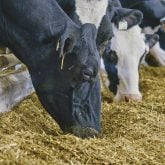An escalating global trade war shows no signs of slowing down.
The United States filed five separate complaints in Geneva July 16 after several countries, including Canada, imposed retaliatory tariffs against a wide range of American goods after Washington imposed an import tariff on steel and aluminum products in June.
Canada imposed a $16.6 billion tariff package July 1 after formally challenging the U.S. steel and aluminum tariffs at the WTO. The European Union and Mexico have filed similar challenges, arguing Washington’s insistence the penalties are necessary because of national security is illegal.
Read Also

Conservation Authorities to be amalgamated
Ontario’s plan to amalgamate Conservation Authorities into large regional jurisdictions raises concerns that political influences will replace science-based decision-making, impacting flood management and community support.
Now, the Trump administration is arguing the tariffs being imposed against the United States violate international trade rules.
This, despite the fact President Donald Trump has spent the better part of two years railing against the usefulness and effectiveness of the international trade body, with the United States accused of holding up WTO appointments.
The shift in the global trading world has North American farmers especially nervous.
Agriculture’s perishable nature has long made it a target in domestic and international spats — even when the dispute has nothing to do with food and/or farming. It’s also heavily dependent on exports. When markets are lost, it reverberates throughout the supply chain.
It’s why farm groups in the United States and Canada pleaded so vocally for a “do no harm” approach when the renegotiation of the North American Free Trade Agreement (NAFTA) was announced.
Now, as world trade tensions continue to mount, farmers — including many American farmers who voted for Trump in 2016 — around the world are finding themselves caught in the crosshairs.
While Canada’s list of goods does not currently include any primary agriculture products, it does include a number of processed food items (such as ketchup, mayonnaise, soup, pizza and quiches).
That has food manufacturers in this country, many of which have parent companies in the United States, nervous. In a statement July 5, the Food and Consumer Products of Canada association warned Canada’s tariff package
In recent weeks, Canadians themselves have also shown, at least anecdotally, they’re willing to dig in their heels against Trump’s trade spat — while adjusting their shopping, eating and travel habits in the process.
Based on the bare shelves at the local grocery store, French’s ketchup is in, it seems. Heinz ketchup? Not so much.
Meanwhile, Canadian commodity prices have also taken a tumble — thanks to the fact they’re tied to the Chicago Mercantile Exchange, which has been hit with the ongoing trade brouhaha between the United States and China.
When the world’s two largest economies are feuding, everyone feels the hit, particularly when $200 billion in goods is involved.
China has put U.S. soybeans and pork on is retaliatory hit list — a move that when combined with the expectation American farmers could harvest bin-busting crops this fall, sent American soybean prices to 10-year lows.
Pork prices have also slumped. Here at home Canadian prices have dropped nine per cent this year compared to 2017.
While risk isn’t a new phenomenon for farmers, no business likes to deal with economic uncertainty forever. Investments become harder to make.
Remaining competitive becomes more and more challenging — especially if the United States follows through on its promise to ensure American farmers don’t suffer undue consequences from the China-Washington trade fight.
Add to that rising protectionism in Canada’s other key trading markets, including India and Italy, and the federal government’s promise to diversify the country’s portfolio remains under stress.
Yet, despite the mud-flinging and tariff-launching, there remains a sense of optimism among economists and trade experts who say the current trade feud could still find a positive resolution.
For now the end to all this remains unclear. Predictability is unlikely to re-emerge anytime soon.
All one can do is try and prepare for the unexpected.













